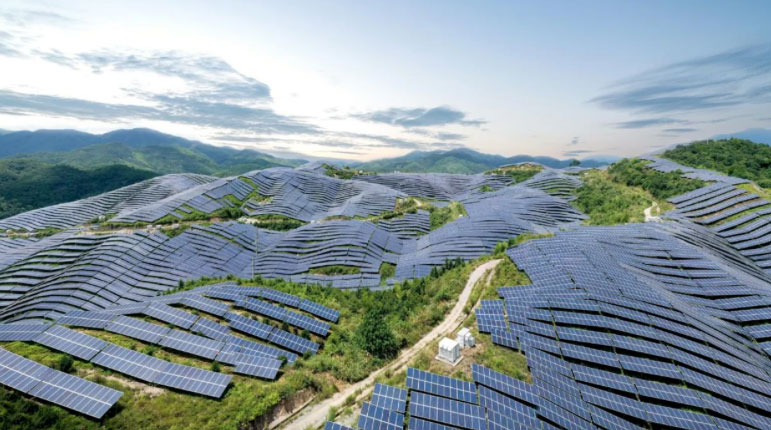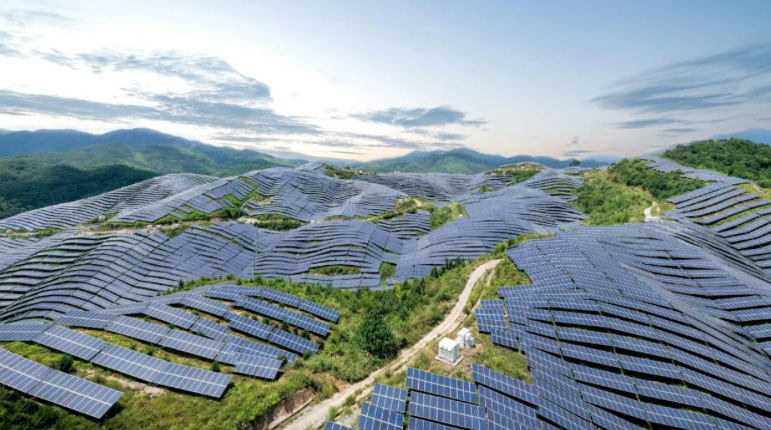
Despite the difficulties associated with the Covid-19 pandemic, the world added a record amount of new renewable energy capacity in 2020, according to data released Monday by the International Renewable Energy Agency.
IRENA’s annual Renewable Capacity Statistics 2021 shows that global renewable energy capacity grew by more than 260 gigawatts (GW) last year, beating the previous record set in 2019 by nearly 50%. Last year marked the second consecutive year in which clean energy’s share of all new generating capacity increased substantially, with renewables accounting for over 80% of all new electricity capacity added in 2020.
Total fossil fuel additions, by contrast, fell by more than 6% last year—from 64 GW worth of new electricity capacity in 2019 to 60 GW in 2020.
“These numbers tell a remarkable story of resilience and hope. Despite the challenges and the uncertainty of 2020, renewable energy emerged as a source of undeniable optimism for a better, more equitable, resilient, clean, and just future,” IRENA Director-General Francesco La Camera said in a statement.
“The great reset,” as La Camera called the coronavirus-driven economic slowdown, “offered a moment of reflection and chance to align our trajectory with the path to inclusive prosperity, and there are signs we are grasping it.”
Referring to 2020 as “the start of the decade of renewables,” La Camera noted that “costs are falling, clean tech markets are growing, and never before have the benefits of the energy transition been so clear.”
Though hydropower—responsible for more than 43% of the world’s total renewable energy generation capacity—still constitutes the largest global source of clean energy, other sources are catching up; solar and wind contributed 127 GW and 111 GW of new installations, respectively, together accounting for 91% of the growth in renewables in 2020
While La Camera described the widespread adoption of renewable energy sources as an “unstoppable” trend, he also emphasized that “there is a huge amount to be done.”
Notwithstanding recent momentum in favor of clean energy, La Camera said that in order to limit global temperature rise to 1.5ºC, “significant planned energy investments must be redirected to support the transition if we are to achieve 2050 goals” of net zero greenhouse gas (GHG) emissions, as outlined last month in IRENA’s World Energy Transition Outlook.
La Camera’s words of caution about the inadequate pace of the global energy transformation echoes a recent warning by Fatih Bitrol, executive director of the International Energy Agency, who said last week that even though the world’s biggest economies have pledged to achieve net zero GHG emissions by mid-century, few have implemented the policies necessary to realize that objective.
Regarding the worldwide expansion of renewable energy capacity in 2020, La Camera stressed that “in this critical decade of action, the international community must look to this trend as a source of inspiration to go further.”
Source : EcoWatch

